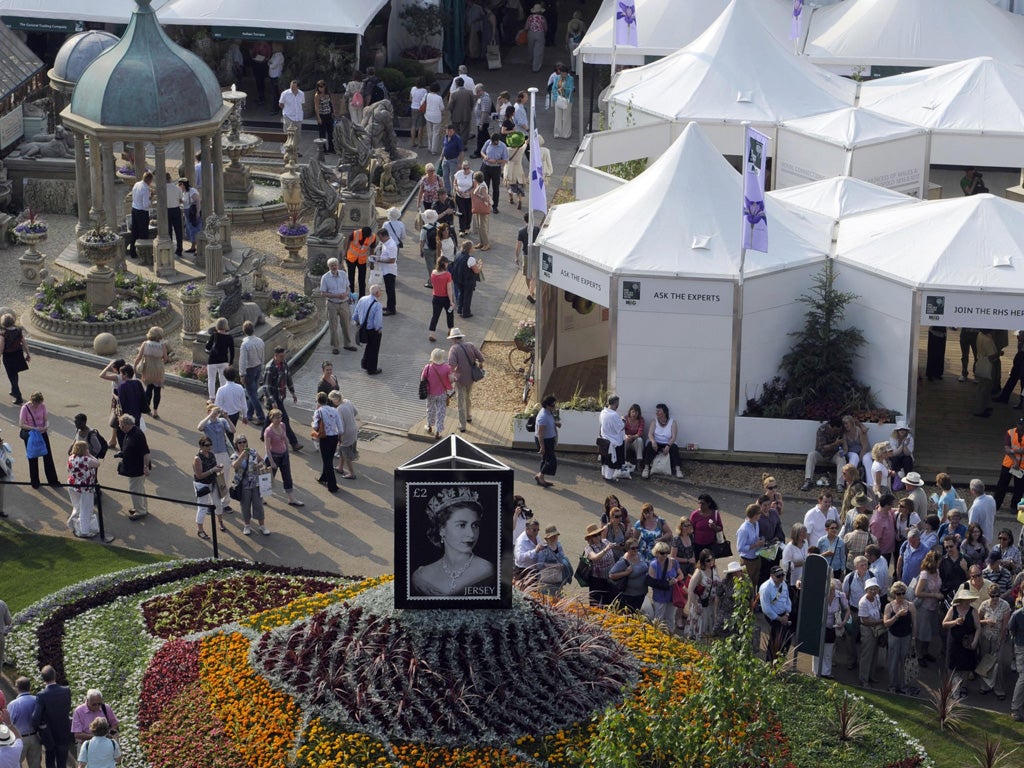Victoria Summerley: Elitist and poisonous – welcome to the world of the herbaceous Borgias

Your support helps us to tell the story
From reproductive rights to climate change to Big Tech, The Independent is on the ground when the story is developing. Whether it's investigating the financials of Elon Musk's pro-Trump PAC or producing our latest documentary, 'The A Word', which shines a light on the American women fighting for reproductive rights, we know how important it is to parse out the facts from the messaging.
At such a critical moment in US history, we need reporters on the ground. Your donation allows us to keep sending journalists to speak to both sides of the story.
The Independent is trusted by Americans across the entire political spectrum. And unlike many other quality news outlets, we choose not to lock Americans out of our reporting and analysis with paywalls. We believe quality journalism should be available to everyone, paid for by those who can afford it.
Your support makes all the difference.Lordy, lordy, and you thought the Chelsea Flower Show was all about flowers, trees and water features. If you believe some of the reports in the papers this week, it's elitist and environmentally poisonous. Talk about herbaceous Borgias.
I never know whether to laugh or cry when I read this sort of thing. Most of the garden designers involved in the show take environmental issues very seriously. Most of the nurserymen and women are struggling to make ends meet. They're not spurred on by filthy lucre – they get their hands dirty not by short-selling or putting their fingers in the till, but while breeding some ravishing new cultivar.
Let's take those claims in reverse order. First, the environment. A group of protesters dressed as giant bees demonstrated outside the showground this week to highlight a new report by Reading University, which says that use of pesticide on crops (crops, note, not gardens) has risen in the past five years. Meanwhile, inside the show, an exhibit by the University of Leeds drew the attention of show visitors to bee-friendly gardening. It was so good it won a gold medal. So much for Chelsea being cast as the poisoner of the planet.
Next up: elitism. This always rears its head at some point, like a particularly pernicious weed, partly because Chelsea is often described as the start of the London Season. In actuality, the number of people attending the Chelsea Flower Show who care about the London Season is probably pretty close to zilch, I reckon. Most of them want to know when to prune their clematis, or how to get their wisteria to flower.
You don't have to pay some vast subscription to go to Chelsea. You don't have to be a member of a particular social stratum, or be an Old Etonian or an Oxbridge graduate.
At the cheaper end of the ticket scale, you can enjoy an evening visit to the show for less than the price of a couple of takeaway pizzas. It doesn't really get more democratic than that.
This afternoon, I'll be working as a volunteer – as I do every year at Chelsea – in the cloakroom, which is run by the gardening charity Plant Heritage. In my years as a volunteer, I have booked in the bags, coats and picnic baskets of all sorts of people – young, old, male, female, Brits, tourists, you name it. I have never come across anyone who seemed remotely posh, or elitist – or poisonous, come to that.
Indeed, most visitors think admission is comparatively good value, given that, for less than the price of a ticket to a Premier League game, they have been able to spend an entire day taking in examples of horticulture that are the best in the world. (You can't say that about English football.)
The trouble with Fleet Street's coverage of the show is that most news reporters are urban, nocturnal creatures who may be familiar with the keys of their BlackBerrys or laptops, but wouldn't know a blade of grass if it hit them in the face. They can't believe that anyone can be genuinely interested in gardening, so they feel a need to spice up their coverage with spurious claims.
The saddest thing about this orgy of denigration is that Britain really is a world leader when it comes to horticulture. Our gardens, and our plant breeders, are among the best in the world, thanks to the combination of a mild maritime climate and a history of expertise that goes back centuries.
At a time when other sectors are struggling in a harsh economic climate, the UK gardening industry is buoyant, with a turnover of more than £5bn a year, fuelled by an increased interest in the environment and the role of gardens in maintaining habitats, and the grow-your-own movement. There are even job vacancies – 11,000 of them.
Yet there is a kind of Britannic malaise that spreads across any homegrown success story like powdery mildew. We seem incapable of patting ourselves on the back – it's far more cool to sneer. The politics of envy – that's what is really poisoning Britain.
Join our commenting forum
Join thought-provoking conversations, follow other Independent readers and see their replies
Comments